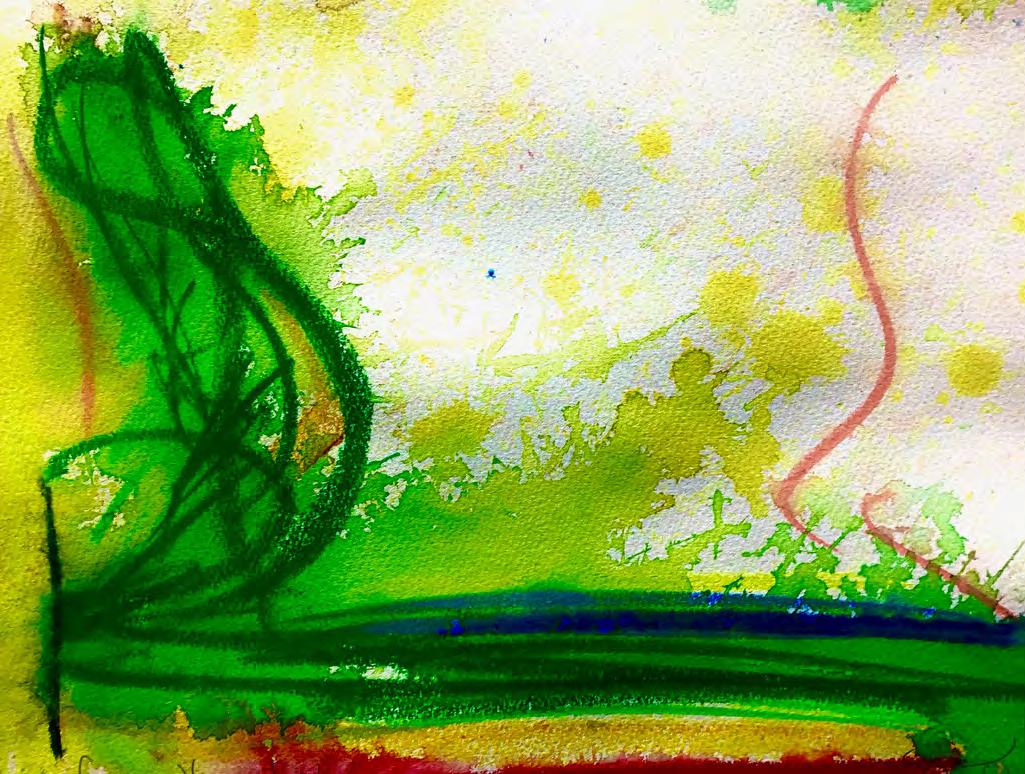Homeric Lockdowns Mr J R B Scragg (CR, Deputy Head Co-Curriculum and Outreach) As we live through what has become widely known in the press as Lockdown 3.0, that term alone reminds us that there has been a wide variety of lockdowns over the past year. Not only have we had the initial, UK-wide lockdown, but we have also had the English ‘lockdown-lite’ of November, not to mention various Scottish, Welsh and Northern Irish (but not Kentish or South African) variants. Which, when the call to HATA arms came, led me to ponder the variety of lockdowns, of one form or another, which Odysseus experiences in the Homeric poems. Many of these can be seen to illustrate a moral of one form or another. So, whilst we should be wary of superimposing modern value systems onto ancient cultures, it is tempting to think that perhaps these lockdowns, or periods of isolation, were conceived as a means of illustrating lessons which listeners might take away from our bard’s song. After all, in a society which lacked formal education, and where the ability to recite thousands of lines of poetry to a musical accompaniment (albeit one that probably sounded like a slashed set of bagpipes or an errant pupil twanging their ruler on the desk) was highly prized, it is tempting to think that those who sat round to listen were also looking to learn. Or at least it is for a schoolmaster . . . Lockdown 1, or, Home is Where the Heart is Part 1 – Calypso The longest enduring of Odysseus’ lockdowns is the seven years he spends on the island of Ogygia with the nymph Calypso. This is where we first encounter him in the Odyssey (in Book V, but the first four books centre on Athena trying to make a man out of Telemachus), even though it is late in his travels. The vast majority of his story will be told in flashback to the people of Phaeacia, the land where he washes up, furry and brine-encrusted, to startle Nausicaa and her maidservants, who are playing ball after doing the family laundry, an episode which, to the bemusement of all, appears locked down in the OCR cycle of GCSE set texts . . . Odysseus is in a similarly sorry state when he lands on Ogygia: his men are all now lost (owing to an unfortunate barbecue involving the Sun God’s cattle, and his ensuing aquatic revenge) and he himself is shipwrecked. In such a state he is not entirely unresistant to Calypso’s advances, although it has to be said that he would be powerless to resist the enchantments of this minor deity, even should he so choose. Seven years down the line, however, and the enchantments have worn thin, and it takes the prompting of Hermes, sent by Athene, to persuade Calypso to send him on his way. Lockdown 2, or, Home is Where the Heart is Part 2 – Curiosity killed the cat 1 Circe Not entirely dissimilar to Odysseus’ stay with Calypso is his time on Aeaea with Circe (Book X, and also the rather excellent novel by Madeline Miller). At this point, Odysseus’ is the last remaining ship. He and his men have come tantalisingly close to making it home, for King Aeolus (i/c winds), having welcomed them after their retreat from the Cyclops, has sent them on their way with all the unfavourable winds tied up in a bag. Assisted in this way, they are within sight of Ithaca when Odysseus’ men, believing the bag to be full of treasure, succumb to avarice and curiosity and open it, when Odysseus is having forty winks, having stayed awake for the previous nine days. Outcome the hostile winds, blowing them back to Aeolia, whence they are sent packing (for the gods clearly hate them), landing on the isle of the peckish Laestrygonians, who smash up all the ships, bar Odysseus’ and make dinner of their men. Upon landing on Aeaea, Odysseus’ men divide in two, with half exploring the island under Eurylochus’ leadership, while Odysseus’ half remain by the ship on the shore. Eurylochus’ men happen upon Circe, who welcomes them and offers them a curious brew which turns them into swine (a moral for the modern world perhaps: ‘always make sure you know what you are drinking’). Also curiously, Eurylochus is rewarded for his hesitancy at this point, for he has hung back, and is able to return to tell Odysseus what has happened. Odysseus heads inland, determined to rescue his men, and would be destined for a porky end, were it not for the happy intervention of Hermes, who offers him moly root, as an antidote to Circe’s enchantment, and tells him to rush her with his sword. Her response to this, obviously enough, will be to suggest that they go to bed, and at this point he should require her to swear that she will never harm him, which she does, before they repair to her bed. The following day Odysseus, refusing all hospitality, persuades the now enamoured Circe to release his men and, 108
In Time of Lockdown: Reflections on Locks, Lockdown, Isolation

Turn static files into dynamic content formats.
Create a flipbookArticles inside
Issuu converts static files into: digital portfolios, online yearbooks, online catalogs, digital photo albums and more. Sign up and create your flipbook.





































